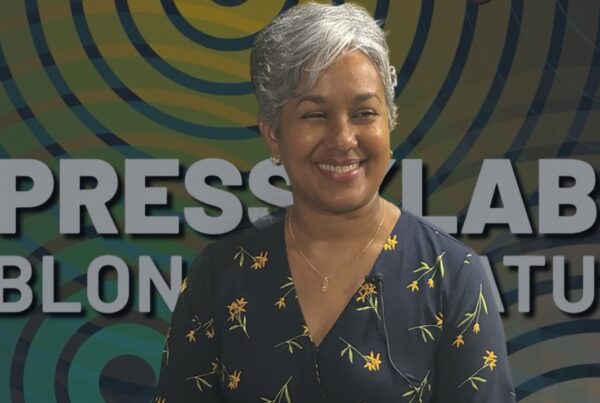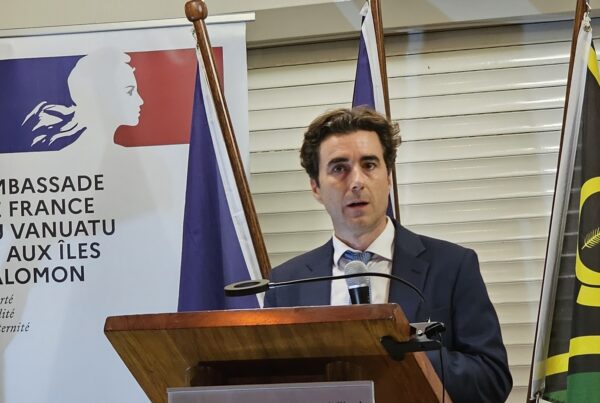LAST UPDATE: April 26, 2025
This timeline serves as a handy resource to retrace the long, painful saga of the EU anti-money laundering blacklist from the point of view of our members. We will keep posting updates on top of the timeline as new events unfold.
December 2023
The European Commission announces the eleventh iteration of its AML-CFT list. The changes faithfully reflect all recent deletions from the FATF grey list (Cayman Islands, Jordan). But Vanuatu remains on the list even though it was given the all-clear by the FAT in June 2018.
August 2023
The European Commission announces the tenth iteration of its AML-CFT list. The changes faithfully reflect all recent additions to the FATF grey list (Cameroon, Vietnam). But Vanuatu remains on the list even though it was given the all-clear by the FAT in June 2018.
June 2023
The European Commission announces the ninth iteration of its AML-CFT list. The changes faithfully reflect all recent additions to the FATF grey list (Nigeria, South Africa) as well as deletions (Cambodia, Morocco). But Vanuatu remains on the list even though it was given the all-clear by the FAT in June 2018.
February 2023
The European Commission announces the eigth iteration of its AML-CFT list. The changes faithfully reflect all recent additions to the FATF grey list (DRC, Gibraltar, Mozambique, Tanzania, UAE) as well as deletions (Nicaragua, Pakistan and Zimbabwe). But Vanuatu remains on the list even though it was given the all-clear by the FAT in June 2018.
May 2022
The issue of beneficial ownership information that was raised in the October 2021 letter is cleared through political dialogue between European and Vanuatu officials, as the VFSC confirms its beneficial owner registry is now fully implemented. However, the Europeans can’t promise this will have an impact on Vanuatu’s assessment due to bad timing – they say something to the effect of “the process has already gone past the technical stage”. When prompted for a follow-up a few months later, they explain that they have been delayed by summer vacations.
February 2022
The European Commission announces the seventh iteration of its AML-CFT list and Vanuatu remains on it.
October 2021
After the DG FISMA postpones several times, the new benchmark is finally sent to Vanuatu, this time to the Vanuatu Minister of Finance. Contrary to expectations, if does not mention removing Vanuatu from the AML-CFT list. Instead, the country is asked for yet more proof of its AML-CFT compliance. It does not require the exhaustive details as the 20-page draft benchmark of 2020 (which has yet to be finalized). This time, a two-page letter, signed by John Berrigan from DG FISMA, advises Vanuatu, in three brief paragraphs, to make beneficial ownership information more available and to apply adequate AML-CFT controls to foreign investment programs. The recommendations are entirely general and lack specific criteria, objectives, or action items. Nevertheless, Mr. Berrigan gives Vanuatu 12 months to implement them, after which time a full review will take place.
June 2021
Clare Daly, Member of European Parliament, asks the European Commission why Vanuatu is on the list of “uncooperative countries for tax purposes” (the other, tax-related watchlist) even though neither the OECD nor the independent Tax Justice Network find its tax regime inappropriate or deem it a tax haven. Daly highlights the discriminatory, damaging nature of the two lists on which the EU persists in placing Vanuatu. Two months later, a letter from Commissioner Mairead McGuinness fails to address specific details, but explains that the Commission placed Vanuatu on its list in 2016 in the wake of the FATF grey list and continues to monitor developments according to its own methodology.
April 2021
A virtual “technical” meeting finally takes place between DG FISMA (EU) and the NCC (Vanuatu). The Europeans are satisfied with the clarification detailed in the 15-page December letter and promise to promptly send a new benchmark reflecting these developments. The NCC team gets the impression that Vanuatu will be removed from the AML-CFT list since it has successfully substantiated its arguments and dispelled any doubts about its AML-CFT regime.
December 2020
The European Commission announces the sixth iteration of its AML-CFT list and Vanuatu remains on it.
December 2020
The OECD Global Forum on Transparency and Exchange of Information for Tax Purposes issues a peer review of Vanuatu’s legislative framework for the automatic exchange of financial account information. The framework is deemed to be “in place and consistent with requirements.”
December 2020
After analysis, Dr. Gregoire Nimbtik sends a detailed reply (part one and part two) reiterating Vanuatu’s desire to meet the EU’s AML-CFT expectations and pointing to some factual errors in the draft benchmark, including previous deficiencies that have since been resolved. Dr. Nimbtik insists that the EU’s assessment of Vanuatu’s AML-CFT regime is inadequate.
September 2020
Dr. Gregoire Nimbtik writes a brief letter to DG FISMA to express Vanuatu’s disappointment that the FATF’s conclusions have been ignored and incredulity of the criticism of its AML-CFT regime. A few weeks later, DG FISMA replies with a two-page letter deeming Vanuatu to be uncooperative and threatening to make its draft benchmark conclusive if a discussion does not take place “as soon as possible.”
August 2020
For the first time ever, after repeated calls, DG FISMA, the Directorate responsible for the file at the European Commission, issues a 20-page draft benchmark detailing why Vanuatu is still on its AML-CFT list.
May 2020
The European Commission announces the fifth iteration of its AML-CFT list, using a “revised methodology.” Vanuatu is still on the list.
March 2020
Thierry Mariani, Member of European Parliament, asks the European Commission why Vanuatu is still on the EU’s AML-CFT list despite nearly two years of compliance with the FATF. Two months later, the Executive Vice-President of the Commission, Valdis Dombrovskis, replies that the European list also considers the requirements of the OECD Global Forum on Transparency and Exchange of Information for Tax Purposes and that the Commission is working on a new methodology. This reply seems to indicate that Mr. Dombrovski has confused the AML-CFT list and the other, tax-related EU watchlist (see March 2019).
July 2019
The OECD Global Forum on Transparency and Exchange of Information for Tax Purposes rates Vanuatu as “Partially Compliant” with its requirements in a detailed report that states, among other things, that requirements for “beneficial ownership requirements are broadly in line with the standard, although the identification of beneficial owners for trusts and foundations needs improvement.” In other words, Vanuatu gets a passing grade.
March 2019
Vanuatu is placed on yet another, separate European Commission watchlist related to fiscal policy: the “list of non-cooperative jurisdictions for tax purposes.” The country has remained on all successive iterations of that list ever since.
February 2019
The European Commission proposes a draft for the fifth iteration of its AML-CFT list. Following the conclusions of the APG and the FATF, Vanuatu is not on the proposed list.
In Delegated Regulation of 13.2.2019 the bureaucrats wrote:
“The Commission’s analysis concluded that, at this stage, Bosnia-Herzegovina, Guyana and Vanuatu do not have strategic deficiencies in their AML/CFT regime considering the available information. Those countries have recently taken a number of measures in order to reinforce their AML/CFT regimes and the Commission will further monitor effective implementation of such measures.”
The draft list consists of 23 names, including several U.S. territories and Saudi Arabia, which are critical of the list. The Council of the European Union rejects the draft list the next month, citing a lack of transparency in the Commission’s selection process. Vanuatu remains on the AML-CFT list, but its officials are told that this is due to an administrative delay and that the European Commission intends to remove Vanuatu from the list.
September 2018
APG releases a new “Mutual Evaluation Report” confirming Vanuatu’s comprehensive compliance with the FATF AML-CFT recommendations. The report is based on the APG’s own analysis with its resources on the ground.
July 2018
The EU announces the fourth iteration of its AML-CFT list, using its own methodology for the first time. Whereas the first, second and third iterations had been modeled on the FATF lists, the list now diverges from these, and includes Vanuatu.
June 2018
The FATF removes Vanuatu from its AML-CFT grey list, noting the country’s “significant progress” in implementing the 2015 recommendations. It is agreed that the APG will continue to monitor Vanuatu’s AML-CFT regime on an ongoing basis.
February 2018
The FATF International Co-operation Review Group recognizes that Vanuatu has completed its action plan and schedules a field visit for May 2018. The visit includes representatives from Australia, New Zealand, Papua New Guinea, and the APG and FATF Secretariats.
2017
During the year, the NCC and its working groups sign a series of Memoranda of Understanding. It submits 30 AML-CFT-related bills to legislators and the first amendments are implemented.
December 2016
Two working groups are established in Port Vila: the first, the Supervisory Working Group (SWG), is made up of representatives from the Reserve Bank of Vanuatu (RVB), the Financial Services Commission (VFSC), the Financial Investigation Unit (VFIU), the Casino Regulator and the Cooperative Registry. The second, the Law Enforcement Working Group (LEA WG), is made up of representatives from police, immigration, customs, the VFIU, the Attorney General and biosecurity. Both groups report to the NCC.
July 2016
The European Commission launches its own AML-CFT list, the “list of high-risk third countries.” The first iteration is modeled after the FATF black and grey lists.
February 2016
The Financial Action Task Force (FATF), the organization that sets international AML-CFT standards – and of which the APG is a member – notes Vanuatu’s high-level of political commitment to addressing its deficiencies. Until this is done, the FATF places the country on its “grey list” of jurisdictions “with strategic AML-CFT deficiencies”.
December 2015
In Port Vila, the National AML-CFT Coordinating Committee (NCC) is established to implement the recommendations of the APG report. Dr. Gregoire Nimbtik, Director of the Prime Minister’s Office, chairs the Committee. There are major upgrades to the legislative and regulatory framework, including control mechanisms and sanctions. The APG provides technical assistance to Vanuatu.
September 2015
The Asia/Pacific Group on Money Laundering (APG), of which Vanuatu is a founding member, submits a “Mutual Evaluation Report,” noting the country shows some weaknesses when it comes to anti-money laundering and combatting the financing of terrorism (AML-CFT). Although no incidents have been reported, several deficiencies are of concern to the APG.





